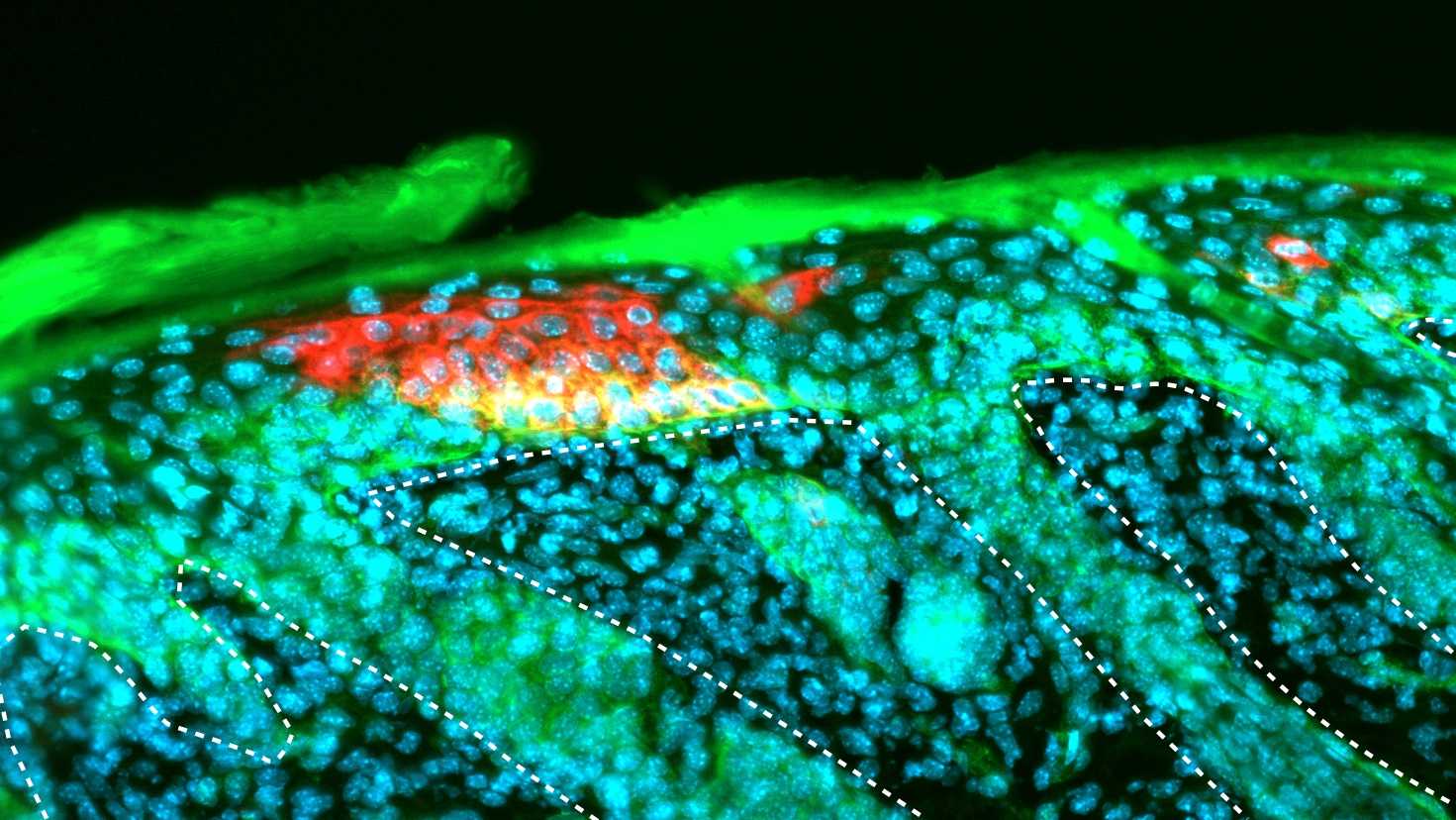Key driver for epithelial cancer development identified
A distinct signalling pathway mediated by a molecule called TNF-α drives the transformation of epithelial cells into aggressive tumour cells. During cancer progression, cells activate their own TNF-α programme and become invasive. This finding could help to improve early detection and treatment of patients with cancers in skin, oesophagus, bladder, or colon, as UZH researchers in collaboration with the group of Andreas Moor state in a study published by Nature.
How does a normal cell in the body develop into an aggressive cancer cell? According to the central tumour model, cancer develops in an evolutionary process. When randomly distributed mutations in cancer genes accumulate in single cells, this gradually perturbs cell division and other cellular properties until the control programmes get out of hand. These cells therefore proliferate faster than their neighbouring cells, leading to uncontrolled multiplication – so-called clonal expansions of the mutated cells. The clonal expansion phase in superficially normal appearing tissues is the first of two key phases in tumorigenesis.

An international research team led by Ataman Sendoel from the Institute for Regenerative Medicine at the University of Zurich (UZH) uncovered that a distinct signalling programme not only acts as a general driver of clonal expansions in human epithelia such as the skin and the mucous membranes in oesophagus, bladder, or colon. It also contributes to the cells’ predisposition for tumour initiation and is sufficient to mediate invasive properties of epidermal stem cells. «Our results show that the TNF-α signalling programme acts as a main driver for the transformation of normal epithelial cells to malignant cancer cells in the key phases of tumorigenesis», Sendoel adds.
Clonal expansions were traditionally seen as a precursor to cancer. The mutated cell clones can take over large areas of a tissue, effectively remodelling entire organs. However, recent research has revealed a more complex picture: clonal expansions are surprisingly frequent in aging human epithelia. In fact, human epithelial tissues are mosaics, consisting of areas dominated by groups of cells originating from a single epithelial cell. But clonal expansions are not always harmful. Sometimes they can even help to prevent tumours.
150 cancer genes in the whole epithelial tissue analysed
To elucidate why only certain epithelial cell clones eventually transform into malignant tumours, the researchers took a detailed look at epithelial cancers – like squamous cell carcinoma, the second most common malignant skin tumour. They developed a single-cell CRISPR technique that allowed them to document clonal expansions in the whole epithelial tissue with single-cell precision. This marks the largest in vivo study of its kind, providing systematic insights into how cancer gene mutations alter cellular behaviour.

“With our analyses we characterized the spatial biology of the tumours. We studied neighbouring cells in their original spatial context of the mouse skin and demonstrated that the tumoral cells at the invasive front co-localize with fibroblasts and endothelia. Our mouse model thus recapitulates the tissue niche previously observed in squamous cell carcinoma patients. This innovative study opens a promising avenue towards early detection, prevention and treatment of specific tumour types.”Andreas Moor, D-BSSE, Systems Physiology group
Read on >> full-length news story on the external page UZH website.
This is the shortened version of a external page UZH news story.
Find original article published by Nature:
Renz, P F, Ghoshdastider, U, Baghai Sain, S, and colleagues (2024) In vivo single-cell CRISPR uncovers distinct TNF-α programs in clonal expansion and tumorigenesis. Nature. 17 July 2024: DOI: external page https://doi.org/10.1038/s41586-024-07663-y
Learn about research in the Systems Physiology group led by Andreas Moor.